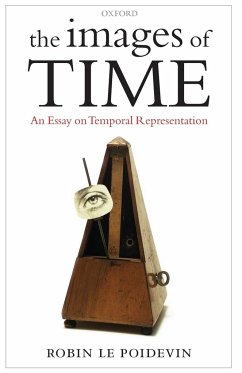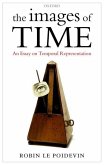The Images of Time presents a philosophical investigation of the nature of time and the mind's ways of representing it. Robin Le Poidevin examines how we perceive time and change, the means by which memory links us with the past, the attempt to represent change and movement in art, and the nature of fictional time. These apparently disparate questions all concern the ways in which we represent aspects of time, in thought, experience, art and fiction. They
also raise fundamental problems for our philosophical understanding, both of mental representation, and of the nature of time itself.
Le Poidevin brings together issues in philosophy, psychology, aesthetics, and literary theory in examining the mechanisms underlying our representation of time in various media, and brings these to bear on metaphysical debates over the real nature of time. These debates concern which aspects of time are genuinely part of time's intrinsic nature, and which, in some sense, are mind-dependent.
Arguably, the most important debate concerns time's passage: does time pass in reality, or is the division of events into past, present, and future simply a reflection of our temporal perspective - a result of the interaction between a 'static' world and minds capable of representing it? Le Poidevin argues that, contrary to what perception and memory lead us to suppose, time does not really pass, and this surprising conclusion can be reconciled with the characteristic features of temporal
experience.
Hinweis: Dieser Artikel kann nur an eine deutsche Lieferadresse ausgeliefert werden.
also raise fundamental problems for our philosophical understanding, both of mental representation, and of the nature of time itself.
Le Poidevin brings together issues in philosophy, psychology, aesthetics, and literary theory in examining the mechanisms underlying our representation of time in various media, and brings these to bear on metaphysical debates over the real nature of time. These debates concern which aspects of time are genuinely part of time's intrinsic nature, and which, in some sense, are mind-dependent.
Arguably, the most important debate concerns time's passage: does time pass in reality, or is the division of events into past, present, and future simply a reflection of our temporal perspective - a result of the interaction between a 'static' world and minds capable of representing it? Le Poidevin argues that, contrary to what perception and memory lead us to suppose, time does not really pass, and this surprising conclusion can be reconciled with the characteristic features of temporal
experience.
Hinweis: Dieser Artikel kann nur an eine deutsche Lieferadresse ausgeliefert werden.








